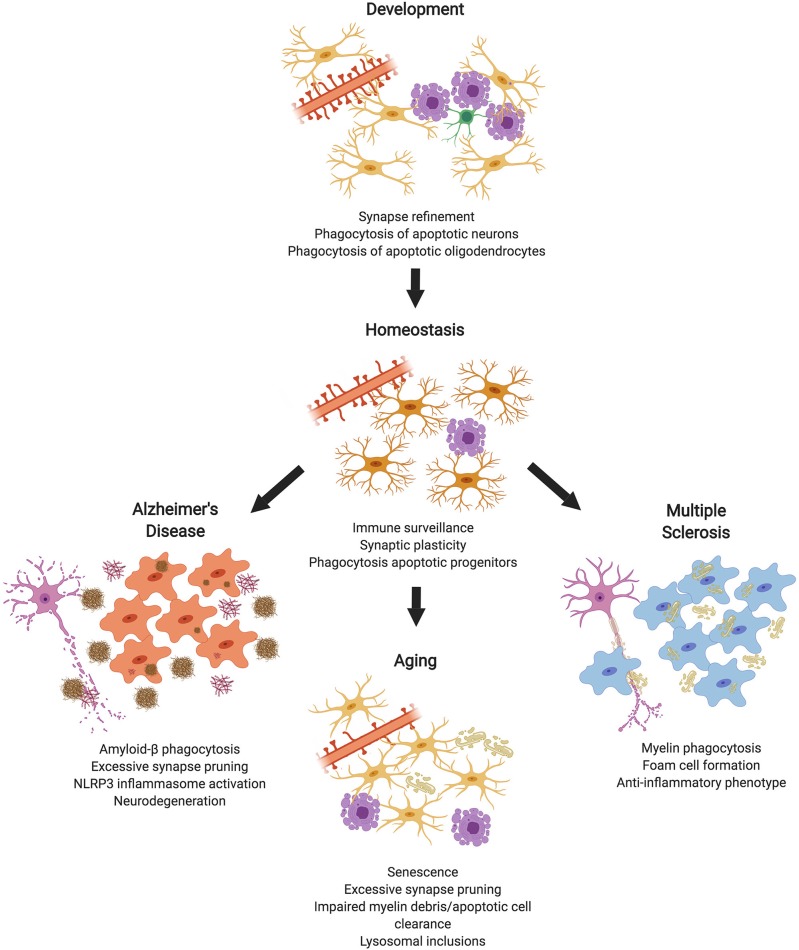Figure 1.
Microglial Phagocytosis in the CNS. During development, microglial phagocytosis is essential for the refinement of excessive synapses, as well as the removal of apoptotic neurons and oligodendrocytes that are overproduced during development. Homeostatic microglia in the adult brain constantly survey the brain's parenchyma, contributing to synaptic plasticity and phagocytosing apoptotic progenitor cells. With advanced age, microglia undergo senescence, display impaired debris clearance, and excessively prune synapses. In diseases, such as Alzheimer's or multiple sclerosis, microglia act as key contributors to pathology, which is partially mediated by phagocytosis of substrates, such as amyloid-β or myelin debris (made in ©BioRender - biorender.com).

